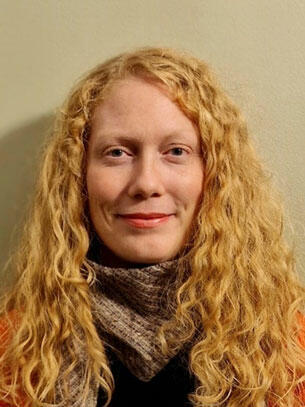Åsne Håndlykken-Luz will defend her thesis Licence-to-kill: Residents’ experiences of living in a ‘pacified’ favela in Rio de Janeiro, 2011-2018 (openarchive.usn.no) for the degree of philosophiae doctor (PhD) in the programme in Cultural Studies at the University of South-Eastern Norway.

Title of trial lecture: What role have women played in challenging gendered necropolitics and creating alternative communities in Rio's embattled urban geography?
Download the thesis (openarchive.usn.no)
Summary
Police pacification Units (UPPs) were installed in many favelas, or poor informal neighbourhoods in Rio de Janeiro since 2008. The pacification programme aimed at bringing peace, public security, and ‘full citizenship’ to residents and at reasserting state control over the favelas and integrating the favelas into the formal city. As Brazil prepared for hosting the 2014 World Cup and the 2016 Summer Olympics, the UPPs along with large scale military operations, and urban upgrading reforms targeted Rio’s favelas, while thousands were evicted from their homes.
This dissertation analyses residents’ everyday experiences of living in a so-called ‘pacified’ favela from 2011 to 2018. The main research questions are addressed in four articles: a) How do residents experience and negotiate space, power, everyday uncertainty, and displacement in a ‘pacified’ favela? b) How are ‘everyday pigmentocratic practices’ lived, challenged, and negotiated within the context of necropolitical violence in a favela with UPP? c) What are favela residents’ everyday experiences of ‘pacification’ and the so-called inclusion of the favelas into the formal city from 2011 to 2018? d) What are the limits and possibilities of visual participatory methods and situated ethics in a fractured longitudinal community research?
The study is based on multi-phase ethnographic fieldwork (2011–2013 and 2018), participatory visual methods and photowalks with residents in the favelas Pavão-Pavãozinho and Cantagalo (PPG) in Rio de Janeiro.
First the findings indicate that in the first few years, residents emphasised several positive aspects of the pacification programme; it was a period in which the presence of weapons and shootouts on the streets decreased. The dissertation reveals how residents’ experiences of living alongside changing urban (in)security politics across a decade display unforeseen or ‘polyhedral’ facets of power and practices of everyday resistance. Second, this study shows that in the period between 2017 and 2019, shootouts occurred daily, weapons came back on the streets, and residents noted that they felt like hostages between the police and traffickers. The results suggest that, although the UPP police were trained in human rights and promoted a discourse of citizenship, the pacification process aimed at ‘civilising’ residents who were regarded as ‘undesirable others’.
Drawing on Black feminist, decolonial, postcolonial, poststructural and urban studies Håndlykken-Luz presents an analysis of favela residents’ experience of violence, autoconstruction, spatial agency and ‘polyhedron of power’ within the context of Rio’s ‘pacifying’ programs. The dissertation argues that pacification and urban militarization unfold as a ‘changing same’ drawing on racialization, in a context of increased militarization and necropolitical violence.
This study provides important knowledge of residents’ experiences and agency beyond the so-called ‘rise and fall’ of UPP, unfolding residents’ spatial praxis, autoconstruction and resistance. These insights from a multi-phase ethnography allow for expanded understandings of residents’ everyday experiences and resistance alongside changing insecurity politics, urban upgrading reforms and militarization over time and are of particular relevance in debates on urbanization, security politics, citizenship, and racism.